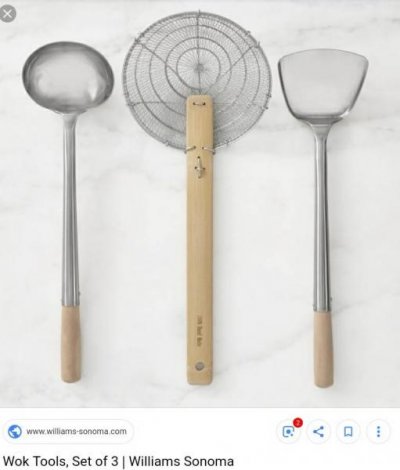Addie
Chef Extraordinaire
But it has nothing whatsoever to do with scratched surfaces. Which is your professed concern.
Exactly. And I don't think there is one home cook that doesn't know just how acidic tomatoes are. At this moment, I can't think of any food that is more acidic than tomatoes. But I am sure there are some.
And just how often does a person cook or even add tomatoes to the food they are cooking in a wok? If you can come up with an oriental dish that has tomatoes in it, then my level of concern will be raised. And if you can, then I doubt very much if it is an authentic oriental concoction. The tomato didn't reach Asia until long after it was in wide use in the U.S. and Europe.
And lastly, the average home cook uses a wooden spoon and/or plastic/rubber spatula to stir a tomato sauce. So any scratching, if any, is kept to a bare minimum.

